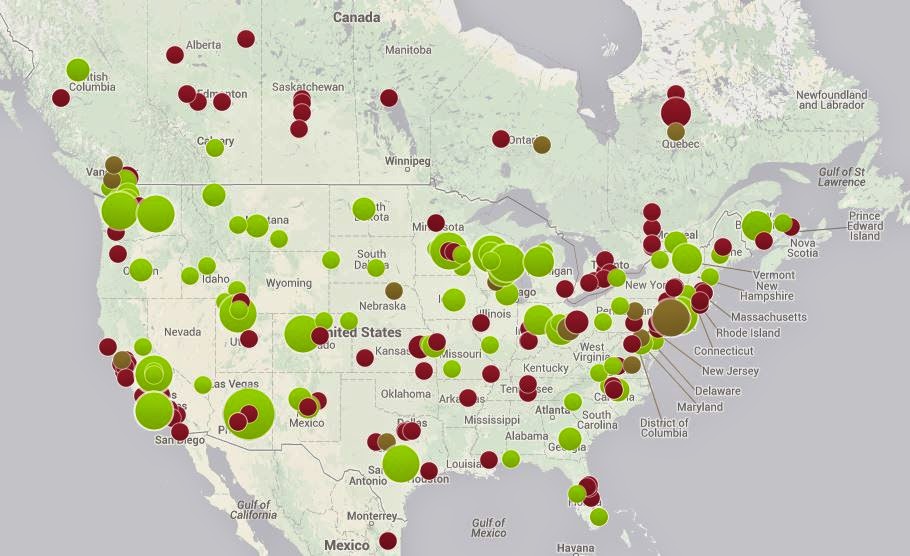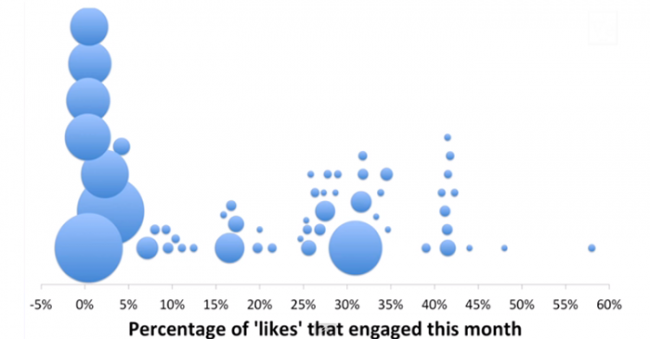
 |
| Outbreaks in North America of measles (red), mumps (brown), and whooping cough (bright green). Source (retrieved 2014-07-02). |
So, The handsome gentlemen co-host of Future Chat and future new-media baron Rob Attrell has asked me to write a brief summary on vaccinations in preparation for Future Sci Chat #3. I told him I’d do what I can, and you may see the results below. For those of you wishing to read the post I wrote in 2011 on the very same topic, have a link.
So what’s a vaccination?
They’re a good thing. A vaccination is often an injected dose of a live, or sometimes dead virus. The virus has either been sterilised (no reproduction means no infection) or treated in such a way that it will not be able to harm the patient. The body then produces the antibodies required to fight off the virus, which are then able to fight off or otherwise discourage a future infection of the same virus. It is not uncommon for the patient to experience symptoms similar to viral infection such as elevated temperature, fatigue, and/or soreness because the body earnestly believes it is fighting off an infection.
Sounds unpleasant, why bother?
Short answer? Because people die. Significant investment was made by North Americans in the mid-twentieth century to cure things like polio, smallpox, measles, mumps, rubella, and whooping cough because those diseases cost lives. Further, when governments are on the hook for health care costs (as is the case for the Canadian provinces), vaccinating the citizenry is a lot easier than dealing with hoards of sick and potentially dying people. This is compounded by the fact that diseases can spread through hospitals, which is why health care professionals are the first to be vaccinated.
So what’s the catch?
You have to deal with a needle and the associated symptoms for a day or two. There are some instances in which people have had adverse reactions to vaccinations, but this is usually due to an allergy to one of the ingredients (or often a preservative agent), or due to a pre-existing complication. Healthy people are not normally in jeopardy.
Doesn’t the MMR (Measles-Mumps-Rubella) vaccine cause autism?
No.
But Jenny McCarthy said –
Jenny McCarthy isn’t a doctor, nor is she in any way trained to formally review or interpret the relevant literature. The medical journal The Lancet published a since-[thoroughly]-discredited paper suggesting a causal link between the MMR vaccine and onset of childhood autism. Recent research has indicated that autism develops while the baby is still in the womb, and therefore cannot be caused by vaccinations.
What if I don’t vaccinate my child(ren), aren’t they safe because all the other kids get vaccinated?
Ah, I see you’ve heard of “herd immunity.” See that map at the top of the page? That’s what those parents thought, too.
P.S. Worth noting is that all those outbreaks in Canada are likely due to parents refusing to vaccinate their children, given that health care is free.
Links:
http://vodkaandequations.blogspot.ca/2011/09/vaccinations-incl-mmr.html
http://www.upworthy.com/it-took-studying-25782500-kids-to-begin-to-undo-the-damage-caused-by-1-doctor?g=2&c=ufb1
http://www.fda.gov/BiologicsBloodVaccines/Vaccines/ApprovedProducts/UCM093833
http://vaccines.com
You will be able to watch Future Sci Chat episode #3, on Vaccines, live at 12:30 PM EDT on Saturday, July 5th, either here below, or by clicking on the link that is this sentence.


